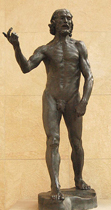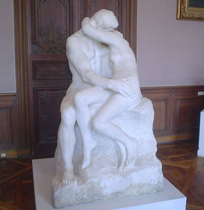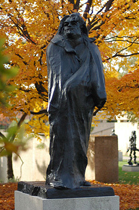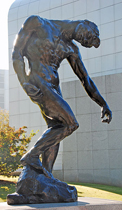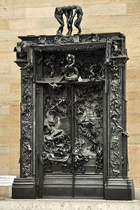
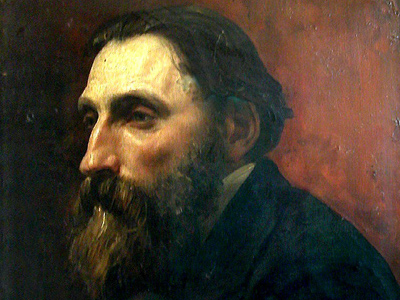
Sculptor - Rodin
François-Auguste-René Rodin was born in Paris on the 12th of November 1840. By the time he was a teenager Rodin had developed a talent for art and he began to study the subject. He applied 3 times to enter the École des Beaux-Arts school in Paris but was rejected on each occasion. Instead he began work as a bricklayer.
Twenty years later Rodin once again tried his artistic hand. He had his first exhibition in 1878 when he was nearly 40 years old and within a few years he had gained a reputation as a skilled sculptor.
Rodin went on to create many more famous works before his death on the 17th of November 1917 at the age of 77. He is now regarded as the pioneer of modern sculpture.
Although the burghers expected to be killed, they were in fact spared.
There were 12 casts made of the work, one of which sits, ironically, in Victoria Tower Gardens, London - the city which was home to Edward III
In Dante's Inferno Francesca and her lover are condemned to the second circle of hell which is reserved for the lustful. Here an eternal whirlwind blows, sweeping them forever through the air - just as they allowed themselves to be swept away by their desire
Rodin worked on and off on this piece until his death in 1917
Ready for more?
not all...
quizzers. Try to win a coveted spot on our Hall of Fame Page.





